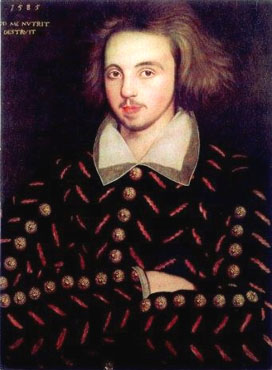Juliet, in a very famous speech in Romeo and Juliet, wishes that Romeo had another name. This would be a perfect place for Christopher Marlowe to give readers a clue about his alias in exile, especially in the form of his favorite device, a pun. So, we have: [above is taken from my HLAS post on July 29, 2002 (edited)] Comments: There really was a mysterious Englishman by the name of William Watts who was a resident of Malta during most of the time period that William Shakespeare wrote his plays. I use the word mysterious only because historical research has yet to uncover many details of his life. Victor Mallia-Milanes, an historian of Malta, offers these rare comments about William Watts (emphasis added):
And, if Stephen Booth in his edition of The Sonnets can suggest that “William” might be intended in Sonnet 121, then why not a hint of “William Watts” in Sonnet 136?
And then thou lovest me for my name is Will.
Also, Andrew Vella, another historian of Malta, mentions William Watts and Watts’ Italianate name “Guglielmo Guacz” in an earlier article in the journal Melita Historica (1970, 214-34, reprint).
The date of William Watts’ death seems to pose a problem for the validity of “The Malta Theory”. Indeed, did William Watts really die sometime before his son was appointed consul to Malta on 15 November 1610? Or, was Christopher Marlowe’s cover as William Watts in danger of being blown, forcing him to abandon his identity on Malta? Hard to say. William Watts may have been simply William Watts the merchant, the commoner, the family-man on Malta with no relation whatsoever to Marlowe and Shakespeare. Very possible.
Then again, it could be that Sir William Harvey, the W.H. of The Sonnets, discovered many documents besides manuscripts of beautiful sonnets in the possession of his wife after her death. Harvey’s wife was the mother of the 3rd Earl of Southampton, Henry Wriostheley. Was she, as a devout Catholic and part of a Continental network of English Catholic exiles, Marlowe’s conduit to England for all his correspondence? If so, then the publication of The Sonnets in 1609, presented a danger to Marlowe and those in high places who had helped him escape persecution in 1593. Under these hypothetical circumstances, Marlowe’s identity in Malta would have to be abandoned, and he would need to be pulled from that island. His cover could be blown, just like the cover of American CIA agent Valerie Plame was blown in 2003.
Notes:
very famous speech:
“William” might be intended in Sonnet 121:
See Booth 1977, 410.
No, I am that I am, and they that level
